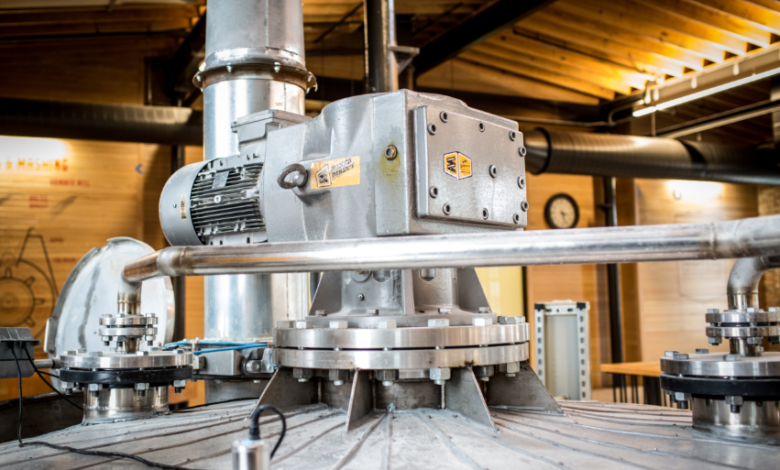How to Choose the Right Industrial Mixer for Your Industry

Introduction
In today’s competitive industrial landscape, efficiency, quality, and sustainability are no longer optional—they’re essential. Whether you are in the food and beverage sector, chemical production, pharmaceuticals, or advanced materials, one factor plays a critical role in your operations: mixing. Industrial mixers are at the heart of creating consistent products, enhancing performance, and meeting regulatory standards.
For decades, companies around the world have relied on advanced mixer technologies to ensure that ingredients—whether powders, liquids, or semi-solids—are combined with precision. Choosing the right industrial mixer, however, is not as simple as it may seem. It requires an understanding of your industry needs, the properties of the materials being mixed, and the technologies available.
This article explores why mixers matter, the different types available, sustainability in mixing, and how businesses can identify the best mixer solutions for their unique applications.
Why Industrial Mixers Matter
PerMix is not just about blending substances—it’s about transforming them into something greater. The success of many industrial processes depends on how well materials are combined.
Product consistency and quality: Proper mixing ensures uniform distribution of ingredients, which is vital for consumer trust and regulatory compliance.
Operational efficiency: Advanced mixers reduce processing times, minimize energy usage, and lower production costs.
Regulatory compliance: Industries like food and pharmaceuticals require strict adherence to safety and hygiene standards, which mixers help to achieve.
Innovation and adaptability: With new product demands, custom-engineered mixers allow industries to stay ahead of the curve.
Simply put, industrial mixers provide the backbone for scalable, reliable, and sustainable production processes.
Types of Industrial Mixers
Industrial mixers come in many shapes and sizes, designed to handle a wide variety of applications. Some of the most common include:
1. Ribbon Mixers
Ideal for powders, ribbon mixers use helical blades that rotate within a trough to move materials in opposite directions. They’re highly efficient for achieving uniform blends in dry material processing.
2. Planetary Mixers
These mixers operate with blades that rotate around both their own axis and the mixing bowl’s axis. They are perfect for applications that require intensive mixing of viscous materials, such as pharmaceuticals and food doughs.
3. High-Shear Mixers
Designed to handle emulsification, dispersion, and homogenization, high-shear mixers break down particles quickly, making them essential for industries like cosmetics, chemicals, and biotech.
4. Vacuum Mixers
Used when air entrapment must be avoided, vacuum mixers are vital in pharmaceuticals and advanced materials. They help in degassing materials for optimal quality.
5. Powder Mixers for Carbon Black and Specialty Materials
Certain industries, like rubber and plastics, require mixers designed for powders with challenging properties. For example, understanding the different types of mixers used in mixing carbon black powders is essential for achieving proper dispersion. These mixers are engineered to handle fine, dusty materials that demand precision.
By selecting the right type, industries can ensure efficiency, safety, and quality in production.
See also: How to Detect and Safely Remove Mold in Your Mississauga Home
Sustainability in Mixing Processes
Sustainability has become one of the most pressing concerns across industries, and mixing technologies are no exception. Industrial mixers now focus on:
Energy efficiency: Modern designs reduce power consumption without sacrificing performance.
Minimizing waste: Advanced mixing techniques ensure raw materials are fully utilized, reducing losses.
Durability and longevity: Mixers built with high-quality materials require less frequent replacement, lowering their environmental footprint.
Cleaner production: Some mixers are designed to minimize dust emissions and improve worker safety.
For companies looking to meet global sustainability goals, investing in eco-conscious mixer technologies is a smart step forward.
Key Considerations When Choosing a Mixer
Selecting the right mixer is not a one-size-fits-all process. Businesses should take into account several factors:
1. Industry Standards and Requirements
Food processing requires mixers that comply with FDA and hygiene regulations.
Pharmaceuticals demand sterile environments and precision engineering.
Chemicals need mixers with resistance to corrosion and extreme conditions.
2. Nature of Materials
Viscosity, particle size, and chemical reactivity all influence which mixer type is best. For instance, sticky or heat-sensitive materials require specialized approaches.
3. Batch vs. Continuous Mixing
Batch mixers are best for smaller, controlled runs where precision is crucial.
Continuous mixers are ideal for large-scale production with consistent throughput.
4. Custom-Engineered Solutions
No two industries are alike. That’s why many manufacturers opt for mixers that are custom-designed to meet their unique production challenges. This ensures maximum efficiency and product quality.
PerMix’s Global Impact
Since 1954, PerMix has been a leader in industrial mixer innovation. Based in Chicago, the company has built a global reputation for producing mixers that combine reliability, efficiency, and flexibility.
Decades of expertise: With over 70 years of experience, PerMix understands the evolving needs of industries worldwide.
Wide industry reach: From pharmaceuticals and food to chemicals and specialty materials, PerMix provides tailored solutions for each sector.
Commitment to sustainability: Their mixers are designed for energy efficiency, durability, and reduced environmental impact.
Custom engineering: PerMix specializes in creating mixers that meet the specific needs of businesses, ensuring optimal performance in even the most challenging applications.
By continually innovating, PerMix has not only supported industries but has also set new benchmarks for quality and sustainability in mixing technologies.
Conclusion
Industrial mixing is more than a mechanical process—it’s the key to consistent quality, efficiency, and innovation. Choosing the right mixer means understanding your industry’s needs, material properties, and long-term goals. From ribbon and planetary mixers to advanced solutions for powders like carbon black, the options are diverse, and the right choice can transform operations.



